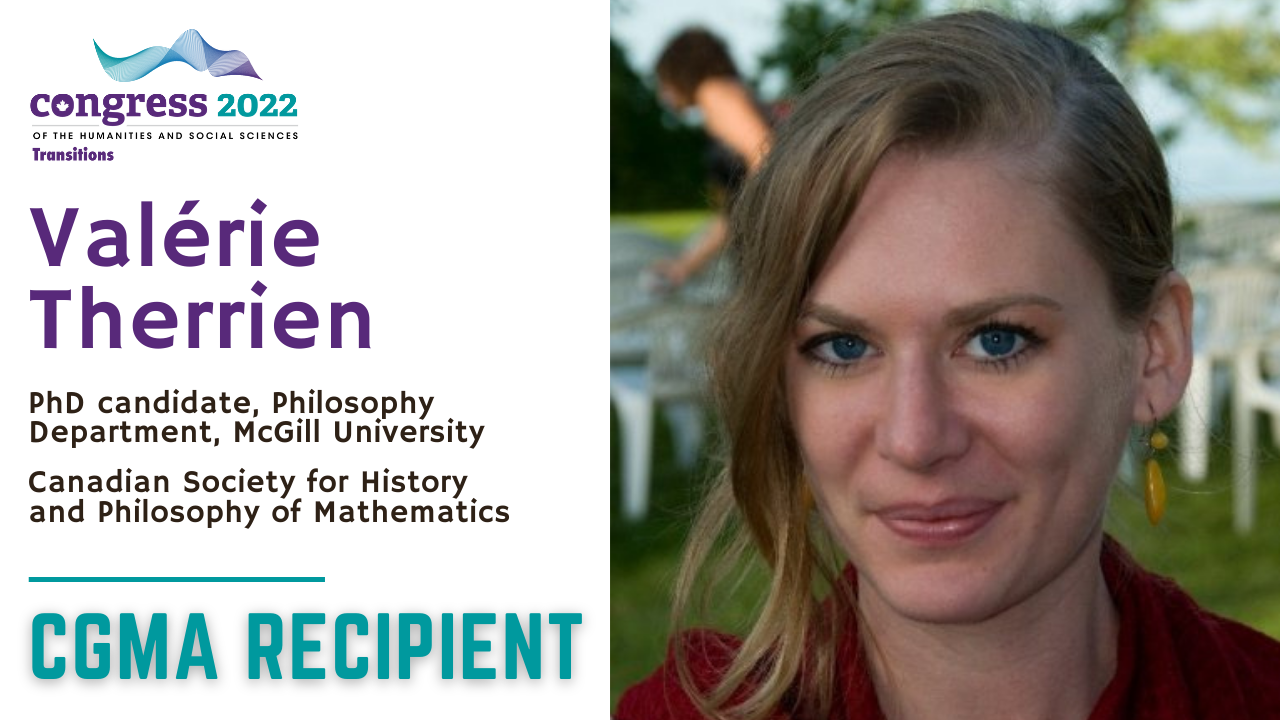Nominated by member scholarly associations of the Federation for the Humanities and Social Sciences, the 2022 Congress Graduate Merit Awards recognize exceptional graduate students who will be presenting their work at the Congress of the Humanities and Social Sciences.

Tell us about yourself.
I am a PhD candidate in the Philosophy Department at McGill University. I work primarily in the History and Philosophy of Mathematics, with a focus on modern mathematics.
Which scholarly association(s) are you currently a member of?
- Canadian Society for History and Philosophy of Mathematics
- Canadian Society for History and Philosophy of Science
- Canadian Philosophical Association
At which conference(s) will you be presenting and/or attending?
Canadian Society for History and Philosophy of Mathematics
What is the title of your Congress 2022 presentation?
The Evolution of Cantor's Proofs of the Non-Denumerability of the Real Numbers
How would you describe the research you will be presenting at Congress 2022?
Cantor gave three distinct proofs of the non-denumerability of the real numbers. The third one is the famous diagonal argument. It hinges on an infinite array of infinite sequences, from which a sequence that isn't an element of the array is constructed. The primary aim of this talk is to track the evolution of Cantor's three proofs. Why did Cantor revisit his proof three times? The secondary aim of this talk is to explore the role of arrays in his proofs. Why did Cantor return to the infinite array he had abandoned for his first two versions of the proof?
How does the research you will be presenting connect with the Congress 2022 theme, Transitions?
This talk is an invitation to slow down and think deeper. Cantor gave three distinct proofs – his most famous one coming after a series of mental breakdowns and a nearly decade-long absence from professional mathematics. Cantor’s belated success came from two distinct sources : (1) absorbing criticism and finding a workaround (in his case, this was his -- at the time -- controversial references to transcendental numbers); and (2) an introspective return to methods that he personally found convincing (in his case, the use of visual aids such as tables which were not considered to be sleek or rigorous by his peers).
What is your favourite part of the Congress experience?
What I love about Congress is the ability to participate in multiple conferences, without having to fly to a different location. As a bilingual Canadian, I also love being able to present my research in the official language of my choosing – which is normally not an option at most conferences. I have personally done both of these things at previous Congresses. Congress is an excellent venue to showcase your research to a broad academic audience.
Share your hopes for Congress 2022.
This is my first online Congress, as last year the CSHPM Annual Meeting was held “at” the University of St-Andrews, in conjunction with the British Society for History of Mathematics. For this Congress, my hope is that we enjoy the valedictory wave of the Zoom era. While returning to in-person this year would have been premature and uncomfortable, I am looking forward to reconnecting in-person with colleagues at the four corners of the world.
